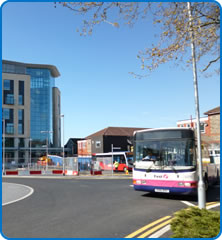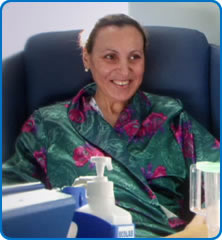You have certain rights regarding your personal information, including the right to:
Access and obtain a copy of your personal information.
You have the right to see your personal information and learn how it's being used. This is called a Subject Access Request (SAR). To make a request, click ‘Make a Subject Access Request.’
However, this right isn't unlimited. The Trust can refuse your request if it could harm someone else's rights or if the request is unreasonable or too much. Also, certain information, like details about legal cases or national security, may be exempt from being shared.
Rectify inaccurate or incomplete personal information
You have the right to ask us to correct any personal information we hold about you if it’s wrong or incomplete. The Trust must do this as soon as possible.
However, this right has some limits. We may refuse your request if the information is already accurate, if changing it would conflict with other legal obligations, or if we need to keep it as it is for legal or valid reasons.
Erase your personal information in certain circumstances
You have the right to ask certain organisations to delete your personal data, for example, when it’s no longer needed or if you withdraw your consent.
However, this right isn’t absolute and has some exceptions. The Trust may refuse to erase your data if it’s needed for:
- Protecting freedom of expression and information
- Fulfilling legal obligations
- Public health reasons
- Archiving, research, or statistical purposes
- Establishing, exercising, or defending legal claims"
Restrict the processing of your personal information
You have the right to ask the Trust to limit how your personal data is used in certain situations. This means you can request the Trust to temporarily stop using your data.
However, this right isn’t absolute—the Trust may still need to use your data for things like legal claims or to protect someone else’s rights.
Object to the processing of your personal information
You have the right to object to how your data is used for things like the Trust’s business interests, public services, marketing, or research.
However, this right isn’t absolute. The Trust may still be able to use your data if they can show strong reasons that outweigh your rights, or if it’s needed for legal reasons.
Withdraw consent, where applicable
You can change your mind and take back your consent whenever it applies. If you've given permission for us to use your personal data, you have the right to withdraw that consent at any time.
To exercise your rights or if you have any privacy-related concerns or questions, please contact our Caldicott Guardian by email CaldicottGuardian@nbt.nhs.uk


 Patients attending hospital may be able to reclaim your parking charges and travel expenses under the Healthcare Travel Costs Scheme.
Patients attending hospital may be able to reclaim your parking charges and travel expenses under the Healthcare Travel Costs Scheme.
 At North Bristol NHS Trust men and women are usually cared for separately. Sometimes there may be wards for both sexes, but men and women will be cared for in separate areas.
At North Bristol NHS Trust men and women are usually cared for separately. Sometimes there may be wards for both sexes, but men and women will be cared for in separate areas.